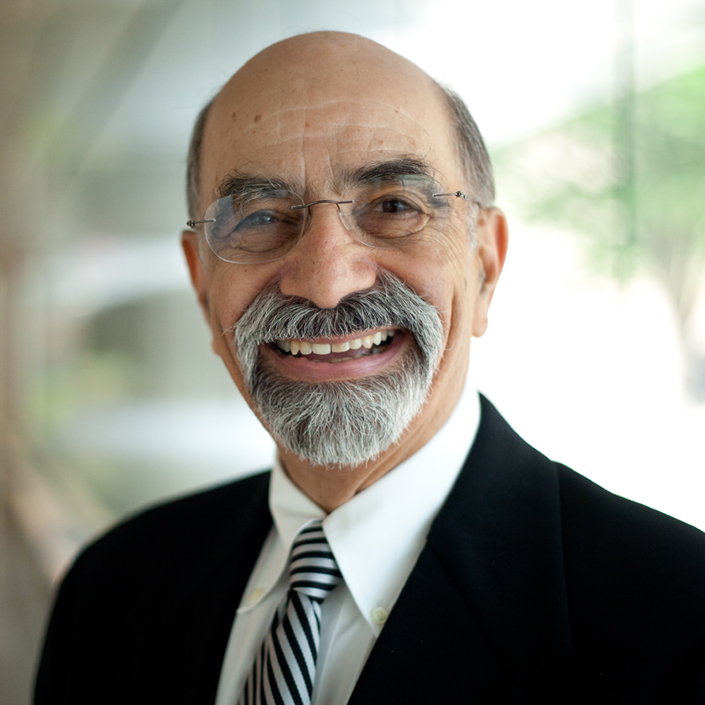Fawwaz T. Ulaby Named Founding Provost of KAUST

 Enlarge
Enlarge
Professor Fawwaz T. Ulaby, R. Jamison and Betty Williams Professor of Electrical Engineering and Computer Science, has been selected as the Founding Provost and Executive Vice President of King Abdullah University of Science and Technology (KAUST). KAUST is a new world-class, graduate-level scientific research university now under development in Saudi Arabia, and scheduled to open its doors in September, 2009.
“It is a great opportunity to shape the future,” says Ulaby, who plans to maintain an appointment at Michigan. “It will provide a means for the easy flow of research, faculty, and students between the two institutions.” Ulaby is expected to assume his duties on September 1, 2008.
Announcing his selection, President-designate Choon Fong Shih noted that Professor Ulaby’s unique combination of qualities and academic and scientific experience made him a prominent front runner for the position.
“KAUST is a new university with a globally competitive agenda in academics and research,” said Professor Shih. “Professor Ulaby is a distinguished scholar and researcher who brings both experience and vision to help KAUST fulfill its unique mission. I am delighted that he agreed to join my leadership team.”
“Professor Ulaby’s experience as vice president for research in one of the premier U.S. public research universities makes him an excellent appointment to the role of Provost,” said Dr. Charles Vest, president of the National Academy of Engineering and president emeritus of the Massachusetts Institute of Technology. “His international outlook and breadth of cultural understanding will bring great value to KAUST.”
In his role as provost, Professor Ulaby will be the chief academic officer and senior administrator for KAUST, reporting to President-designate Shih and KAUST’s independent Board of Trustees. He will be responsible for overseeing all educational affairs and research activities, including the recruitment of faculty and academic administrators. He will also oversee the chairs of KAUST’s four academic divisions: Engineering and Applied Science; Physical, Material, and Earth Sciences; Applied Mathematics and Computational Science; and Biosciences and Bioengineering. KAUST leaders selected the University’s initial academic divisions and associated research thrusts for their importance to the existing industries in Saudi Arabia, the development of future, knowledge-based industries, and the potential regional and international impact.
Biographical Summary
Since joining the University of Michigan faculty in 1984, Professor Ulaby has directed numerous interdisciplinary, NASA-funded projects aimed at the development of high-resolution satellite radar sensors for mapping Earth’s terrestrial environment. He also served as the founding director of the NASA-funded Center for Space Terahertz Technology, whose research was aimed at the development of microelectronic devices and circuits that operate at wavelengths between the infrared and the microwave regions of the electromagnetic spectrum. Prior to his current position, Professor Ulaby served a seven-year term as the University of Michigan’s vice president for research from 1999-2005, with responsibility for an $800 million research enterprise. Over his academic career, he has supervised more than 100 talented graduate students.
Professor Ulaby is a member of the U.S. National Academy of Engineering, Fellow of the American Association for the Advancement of Science (AAAS), and Fellow of the Institute of Electrical and Electronic Engineers (IEEE), and he serves on several international scientific boards and commissions.
In recognition for his outstanding teaching and distinguished scholarship, he has been the recipient of numerous honors and awards from universities, government agencies, and scientific organizations. Among them are the Geoscience and Remote Sensing Distinguished Achievement Award (1983), the Kuwait Prize for Applied Science (1987), the NASA Achievement Award (1990), the University of Michigan Regents Medal for Meritorious Service (1996), the IEEE Millennium Medal (2000), the 2002 William Pecora Award, a joint recognition by NASA and the Department of the Interior, and the Distinguished FEA Alumni Award from the American University of Beirut (2006). In 2006, he was selected by the students in the Department of Electrical Engineering and Computer Science as “Professor of the Year,” and shortly thereafter, he was awarded the Thomas Edison Medal, the oldest and most coveted medal in the field of electrical and computer engineering in the United States.
 MENU
MENU 
